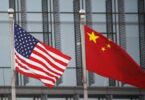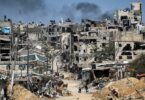AMMAR AL ASHWAL
Yemen’s successive crises, conflicts, and general instability, which have beleaguered the country for decades now, raise the questions of how Yemen’s unique geography has contributed to its woes. Has a “curse of geography” caused Yemen’s collapse? In his book The Revenge of Geography, political and military expert Robert Kaplan described Yemen as an “all important heart,” attributing its instability to its strategic location and its topography. Kaplan’s opinion is seemingly supported by the raging conflicts currently taking place on ground.
The war in Yemen began on the March 26, 2015, when an Arab Coalition led by Saudi Arabia launched operation “Decisive Storm” to overthrow the Houthis and restore the internationally recognized government to power. Soon thereafter, Saudi Arabia and the United Arab Emirates extended their territorial control over vital and strategic areas in Yemen, forming and supporting political and military entities parallel to, and sometimes competing with, the government. Meanwhile, the Yemeni president Abed Rabo Mansour Hadi lives in exile in Riyadh under quasi-house arrest.
This complicated set of circumstances requires a thorough examination of the role that geopolitics plays in the evolution of Yemen’s regional relations, particularly with Saudi Arabia, the UAE, Iran, and Turkey.
BAB AL-MANDAB
Strategically located on the Bab al-Mandab strait, Yemen has long been at the center of regional geopolitics. The strait separates Yemen and Djibouti, and Asia from Africa, connecting the Red Sea to the Gulf of Aden and the Indian Ocean. The strait is 30 kilometers (KM) wide and is divided into two channels by Perim Island; the western channel is 26 KM wide and 30 meters deep, and the eastern is 3 KM wide and 310 meters deep.
This famous gateway has witnessed various wars, conflicts, and struggles throughout its history, like the 1973 blocked of Iranian oil tankers headed to Israel during the October war. Bab al-Mandab’s significance drastically increased upon the opening of the Suez Canal in 1869, which led to growth in the volume of international maritime trade. Its significance rose again following the discovery of oil in the Arabian Peninsula and the rise of trade from East Asia. The vital waterway is now a major artery of globalization as it connects Europe to the Indian Ocean and East Africa.
SILK ROAD
Given its distinguished location, it is unsurprising that Yemen is key to China’s “Belt and Road” initiative, also known as the “New Silk Road.” The strategic location of Yemen’s islands and the ports of Aden and Mocha should put Yemen in an ideal position to establish partnerships and acquire business opportunities that would ensure its economic vitality.
While representatives of Hadi’s government signed a preliminary Memorandum of Understanding with China in 2019, the UAE interfered, assuming complete control of Yemen’s vital ports and islands – inhibiting Yemen’s ability to participate in the project. The UAE’s decision also infringes on Yemen’s sovereign right to pursue its economic interests. The UAE, meanwhile, is pursuing an ambitious strategic agenda that seeks to ensure that DP World, a Dubai company, has full control over both the Yemeni ports and the Bab al-Mandab strait. This could ensure that the area becomes a hub for UAE commercial activities, while allowing the Emirates to play the role of a regional protector through control of the flow of arms and support to proxy groups.
In presenting itself to the West and Israel as the guardian of the region, the UAE is attempting to compensate for the failing Gulf policy of dual containment against Iran and Turkey. The Emirates have no qualms about insinuating that the alternative to its presence would be either the Iran-backed Houthis or the Turkish-backed Islah party. This policy was directly illustrated by the UAE’s 2017 military engagement with Yemeni forces to remove the Houthis and the Islah party from control of Bab al-Mandab.
CONTROLLING THE LAND
In February of 2020, Abu Dhabi officially announced the withdrawal of its troops from Yemen, but it is likely that Abu Dhabi will retain its influence, either directly or indirectly, in strategic areas of the country. Though the UAE vacated most of its facilities in Eritrea, it recently began building a military base with an airstrip on the Island of Perim. It has also created several political and military entities to solidify its presence and control, including the Southern Transitional Council (STC) in 2017, headed by Aidarus al-Zoubaidi, and more recently in March 2020, the Political Bureau of the National Resistance, headed by Brigadier General Tariq Saleh, which administers several non-state armed groups thought to include a total of about 200,000 fighters.
These UAE-backed entities effectively control southwestern Yemen. They enjoy the backing of international great powers that do not hesitate to make public diplomatic gestures to show their support. Zoubaidi was invited to attend a session in the British House of Commons, and Michael Aron, the British ambassador to Yemen, made an affable welcome to the announcements of the Political Bureau of the Yemeni National Resistance. The meeting the ambassador held with Tariq Saleh, the leader of the Bureau, was a clear sign of the United Kingdom’s support to STC’s inclusion in the newly formed Yemeni government, as per the Riyadh Agreement, which would allow the STC to gain more international political recognition.
The UAE’s control of the strait also suggests that there will be an indirect Israeli presence, especially after relations between the two countries normalized. It is no secret that the Bab al-Mandab strait is as important to Israel as it is to Egypt, especially if the Ben Gurion Canal, the Red and Mediterranean Sea waterway that the Israelis are promoting as a potential rival to Suez Canal, is ever constructed.
A CROSSROADS OF COMPETITORS
As global attention is directed towards the city of Marib, the center of a grinding war since February 7 between the Houthis and forces backed by Yemen’s internationally recognized government, the government forces have tried to thin Houthis forces by engaging them in another battle in Taiz.
The Popular Mobilization forces, and other formations of the Islah party supported by Turkey and Qatar, focused their attack on the west of Taiz province, towards the city of Macha and Bab al-Mandab, where there is a small Houthi presence, and a large corps of Emirati-backed forces. These military moves coincided with a direct request made by Sheikh Hamid al-Ahmar, the prominent tribal and Islah party leader, for a Turkish military intervention in Yemen, arguing that it is the only way to restore the legitimate government to power. This seemingly follows the critical role Turkish intervention in Libya.
The UAE, Turkey, Iran, and Qatar all find themselves entangled in the war in Yemen. The frantic conflicts among countries involved in Yemen’s tragedy are the direct result of greed and regional ambitions that have destroyed Yemen and could very well lead to its fragmentation. The UAE continues to play its role in Yemen with tacit blessings from the U.S., evidenced by former U.S. Defense Secretary James Mattis dubbing the UAE “Little Sparta” after its takeover of the Bab al-Mandab strait in April 2017, favorably comparing the Emirates to the ancient Greek city-state which battled the Persian empire. Abu Dhabi’s ambassador in Washington, Yousef al-Otaiba, responded that [we] “believe that America’s role in our part of the world provides stability, provides security, provides jobs, provides ideas. And so, we’re not only in the pro-U.S. camp. We are the cheerleaders of the pro-U.S. camp.” Additionally, the Biden administration has decided to proceed on a $23 billion arms sale to the UAE that includes F-35 fighter jets.
This understanding between the two countries indicates that Bab al-Mandab, and other vital areas, are likely to remain under direct UAE control in violation of Yemeni sovereignty until Yemeni actors agree to a unified political position or an unexpected fundamental change in regional dynamics occurs.
Ammar Al Ashwal is a Yemeni journalist for a number of Arab and international newspapers. He holds a master’s degree in media and communication sciences from the Lebanese University in Beirut. Follow him on Twitter @lshwal.
Courtesy: (carnegieendowment.org)






